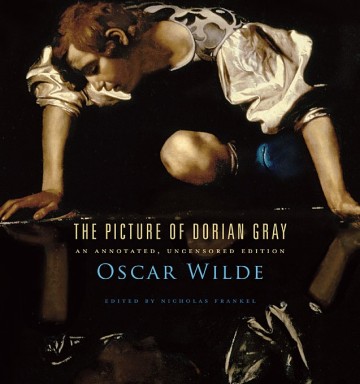
Published for the first time — The annotated and uncensored edition of Oscar Wilde’s The Picture of Dorian Gray is released by Harvard University Press
Originally published in the Northside San Francisco in August 2011
Be yourself; everyone else is already taken. —Oscar Wilde
Few artists have suffered for what they believed in like Oscar Wilde. The year 2011 brings Wilde some justice as Harvard University Press has for the first time published the annotated and uncensored edition of his classic novel.
In 1891, The Picture of Dorian Gray was first released in book form. At the time, Oscar Wilde was the darling of the world of theatre and the arts, famous for his wit, writing and poetry. By the end of 1900 he had died in exile under an assumed name, since by then the name Oscar Wilde became permanently associated with his conviction for gross indecency, a conviction for which he served two years of hard labor in prison.
“The books that the world calls immoral are books that show the world its own shame.” Wilde is nearly as well known for his apt and witty quotes as he is for his prose. No spoilers here, but what portions were omitted in 1891? What was so scandalous? Simply put, romance between men. In a time before the word homosexuality was commonly used, men who loved men were referred to as “unclean” or “unhealthy”.
Wilde had said many times that the three main characters in Dorian Gray represented different aspects of his own personality: Lord Henry, the worldly hedonist; Dorian Gray, the beautiful young narcissist who inspires the painter, Basil Hallward, to paint his portrait. In the uncensored edition, Basil’s love for Dorian isn’t just based on an artistic appreciation of beauty, their relationship is overtly romantic. Wilde’s novel emerges as a study of men who must lead a double life, and the terms they had to employ to discuss and disguise their own passions which, in the case of Dorian Gray, are ultimately destructive.
Wilde’s epitaph, taken from his last work, The Ballad of Reading Gaol, summarizes the displacement he experienced at the end of his life:
And alien tears will fill for him
Pity’s long-broken urn,
For his mourners will be outcast men,
And outcasts always mourn.
If the lipstick kisses on his tomb in Paris are any indication, Oscar Wilde remains a fascinating and beloved figure in literature and popular culture. (The lipstick is corrosive to the monolith, so when visiting his tomb, please bring flowers instead.) The scandalous reputation he had in his own time has been replaced with a respect for his singular brilliance.
Time has shown that Dorian Gray managed to break down Victorian mores while making a path for what would become modern literature. For this, Wilde was the martyr. The uncensored edition of The Picture of Dorian Gray is a victory not only for Oscar Wilde but for all who value freedom of creative expression in a free society.